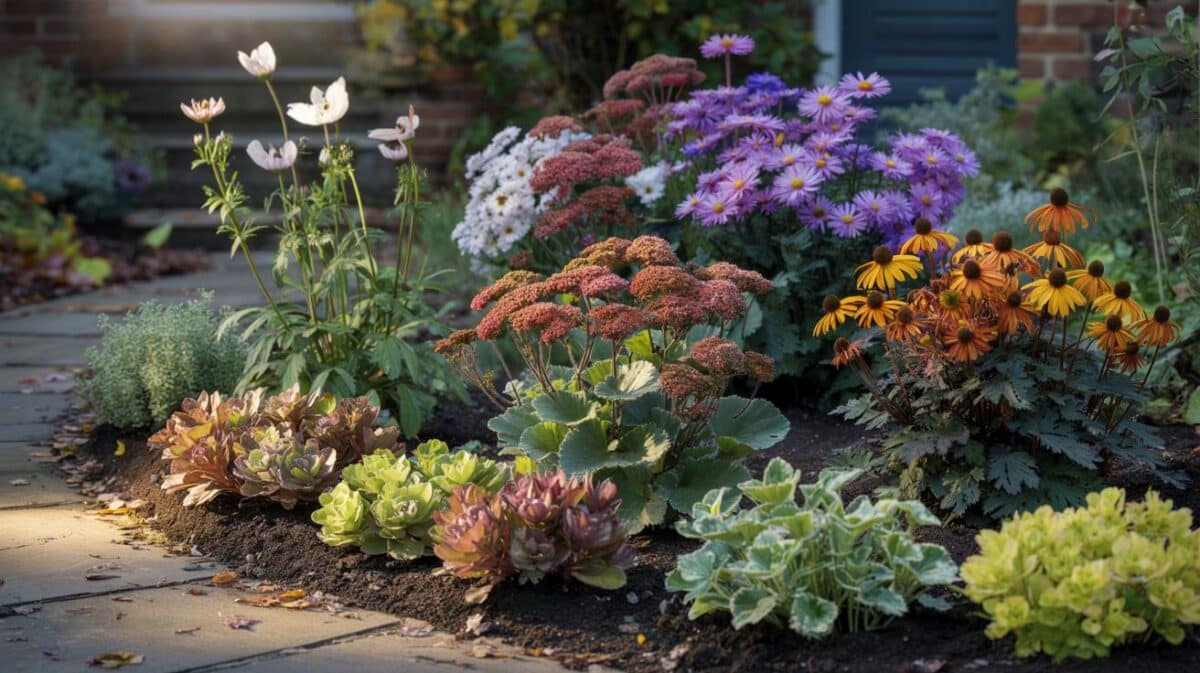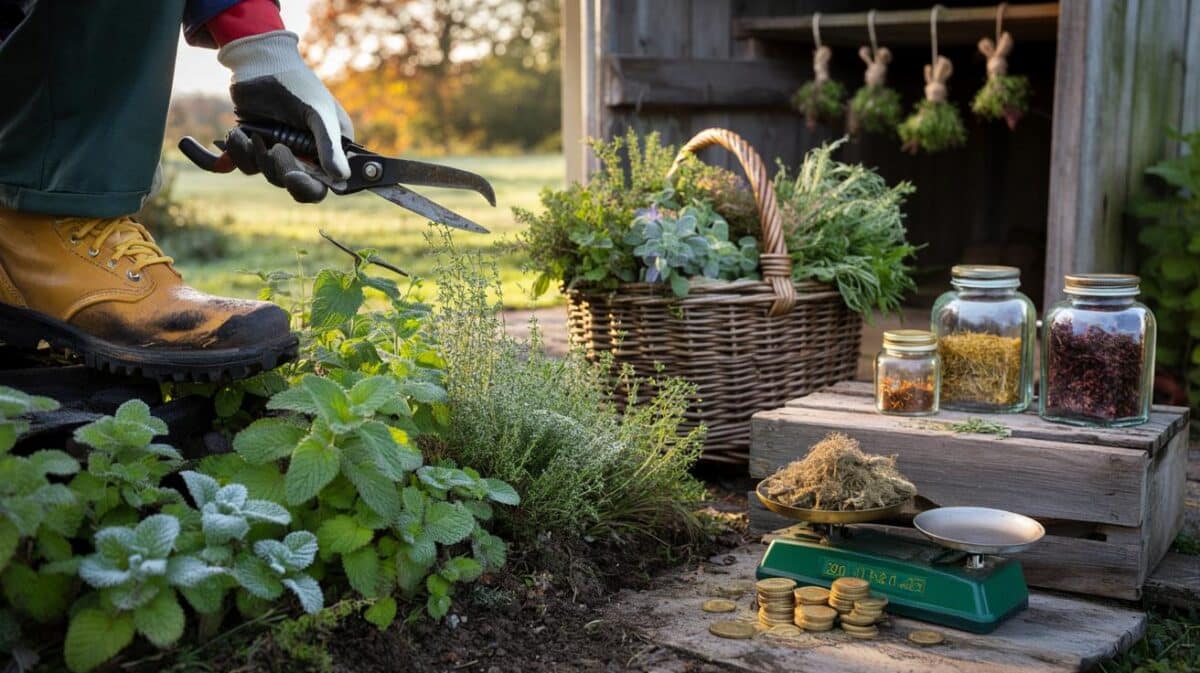The result feels oddly calming.
A handful of rosemary in a small pan, ten quiet minutes on the hob, and the room changes character. The air smells cleaner, concentration comes easier, and heavy odours fade without the sting of synthetic perfume. The method costs pennies, needs no gadgets, and sits neatly within the shift toward simpler, low-tox routines at home.
Why a simmering sprig changes the room
Heat drives off volatile compounds from rosemary, including 1,8‑cineole, borneol and camphor. These light molecules travel fast through warm air. They reach the nose quickly and influence how you perceive the space: fresher, less stuffy, more breathable. You do not need much. Four to six sprigs in a litre of water build a soft, pine‑citrus veil rather than a cloying cloud.
Ten minutes of gentle simmering can mute frying smells and mustiness for one to two hours in an average kitchen.
People also report a steadier focus. Aromas link directly to memory and attention. A mild, resinous scent can nudge you into a more alert, calmer state, which helps with reading, admin or a late‑afternoon slump. Some households treat the ritual as a reset after cooking or before a study session.
The science in plain terms
Steam lifts small amounts of aromatic oils into the room. These are not the same as pouring bottled essential oil into a diffuser. The concentration stays low, the profile stays soft, and the effect remains local to the room. Rosmarinic acid and other heavier antioxidants mostly stay in the pot, so the steam freshens rather than disinfects. You still need normal cleaning and proper ventilation.
Think of rosemary steam as an atmospheric tidy‑up, not a clinical clean.
How to do it safely at home
- Measure 1 litre of water into a medium pan and add 4–6 fresh sprigs (about 10 g) or 1 tablespoon of dried rosemary.
- Bring to a boil, then reduce to a quiet simmer for 8–12 minutes with the lid off.
- Switch off, let it stand for 5 minutes, then place the pan somewhere stable to continue diffusing.
- For a spray, strain the cooled liquid into a clean bottle. Use within 72 hours. Keep it in the fridge between uses.
- For wipe‑downs, dilute 1 part rosemary water with 3 parts warm water and use a soft cloth on hard, sealed surfaces.
| Method | Best for | Coverage | Longevity | Scent strength |
|---|---|---|---|---|
| Open‑pot diffusion | Cooking smells, stale corners | Kitchen or small living room (15–25 m²) | 60–120 minutes after simmering | Medium |
| Room spray | Fabrics, hallway, quick refresh | Targeted areas | 20–40 minutes per spritz | Light to medium |
| Wipe‑down rinse | Bins, counters, cupboard doors | Surfaces you clean | Several hours on surfaces | Light |
A garden handful costs £0 if you grow it, around £0.30–£0.50 if you buy a pack—enough for two pots.
What you’ll notice, room by room
Kitchen: steam offsets frying and fish smells and leaves a clean, herbal trail without the sugary edge of many aerosols. Bathroom: a quick spray helps between deeper cleaning sessions, especially around bins and mats. Workspace: a small mug of hot rosemary water next to you releases a discreet scent that feels tidy and alert, not sleepy.
If you prefer variety, add a strip of lemon peel for brightness or two lavender heads for a rounder, softer finish. Keep the rosemary as the base, then add no more than one extra note at a time so the room does not feel crowded.
Benefits, with limits to respect
Rosemary steam freshens the air, reduces the sense of heaviness, and can support attention during light tasks. Warm vapour may ease mild nasal stuffiness for a short period. For drinks, a simple tea—one teaspoon dried rosemary per cup, steeped five minutes—fits occasional use. Many people brew it after a heavy meal; others prefer it earlier in the day because the bright scent can feel stimulating.
The plant itself contains iron, calcium, magnesium, potassium, zinc and rosmarinic acid in significant amounts when measured per 100 g dried. That snapshot speaks to the plant’s richness, yet a room steam or a short brew only extracts a fraction. Treat the practice as sensory care and housekeeping, not as therapy.
Safety notes you should not skip
- Never leave a simmering pan unattended. Set a 10–12 minute timer.
- Keep the hob area clear and the handle turned in. Move the pot only once it has cooled a little.
- If you live with asthma or fragrance sensitivities, test with a brief, low‑strength simmer and ventilate well.
- Limit use around babies and toddlers. Check with a health professional during pregnancy.
- Do not apply undiluted rosemary essential oil to skin. Do not treat steam as a disinfectant when proper sanitising is required.
- Pets vary. Give them an escape route and ventilate if they seem bothered.
Ventilation, humidity and timing
Open a window by 2–3 cm during and after simmering to move moisture along. Keep indoor humidity between 40% and 60% to avoid condensation and mould; a small digital hygrometer costs £8–£12 and helps you judge. Short, purposeful sessions beat long boils. Aim for two or three steams per week, not a rolling pot all day.
Make it part of a routine
Use it right after cooking to neutralise lingering oil notes. Run a pot 30 minutes before guests arrive, then turn it off and let the warmth carry the scent. For study or admin, simmer briefly, then sit down while the room still smells crisp. Tie leftover woody stems with string and dry them for the next batch, or drop them under a roasting tray to perfume vegetables.
- After fish night: 10 minutes simmer, window ajar, lid off.
- Sunday reset: wipe bins and cupboard doors with diluted rosemary water.
- Late‑afternoon slump: a small spray on curtains and a cup of mild rosemary tea.
Related ideas if you want variety
Bay leaf gives a kitchen‑clean note and pairs well with rosemary for heavier cooking smells. Thyme adds a greener, savoury edge for winter stews. Citrus peel cuts through damp‑towel odours in bathrooms. Keep additions small: one bay leaf, two thyme sprigs, or a single strip of peel per litre. More than that can overwhelm the room and your nose.
You can also swap the hob for a heat‑proof bowl: pour over just‑boiled kettle water and add two sprigs. The scent is lighter and fades sooner, yet it reduces risk and energy use. If you want repeatable results, weigh the herb once—10 g fresh or 3 g dried per litre—and note your preferred simmer time. Small, consistent details keep the ritual reliable and affordable.








Tried this today—my kitchen smelled fresher and I focused better during emails; definitley nicer than aerosol sprays. Thanks for the clear steps and the dose of science!